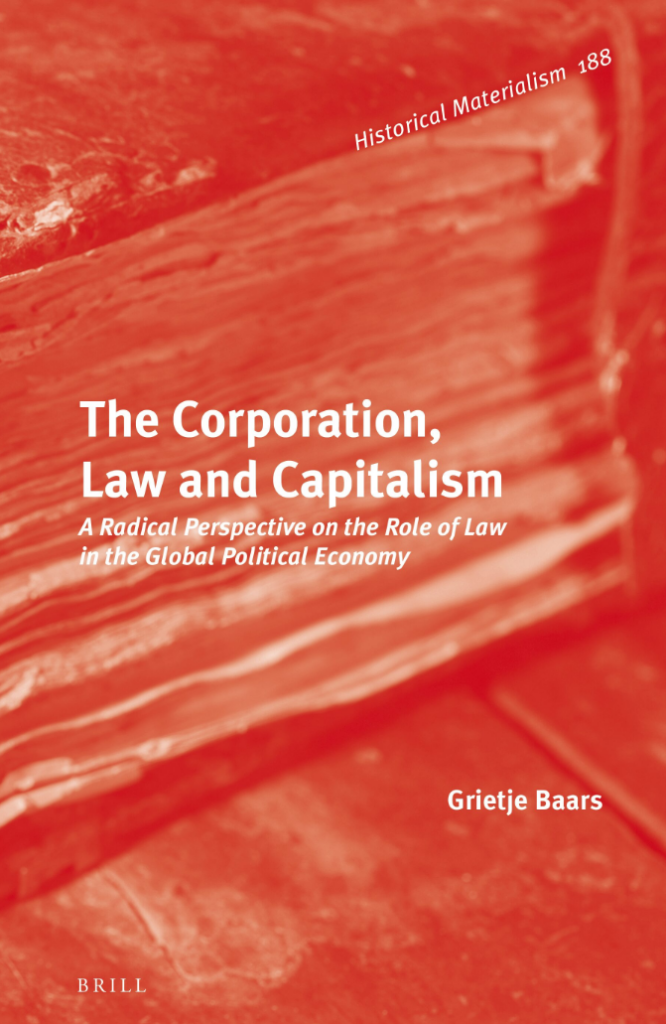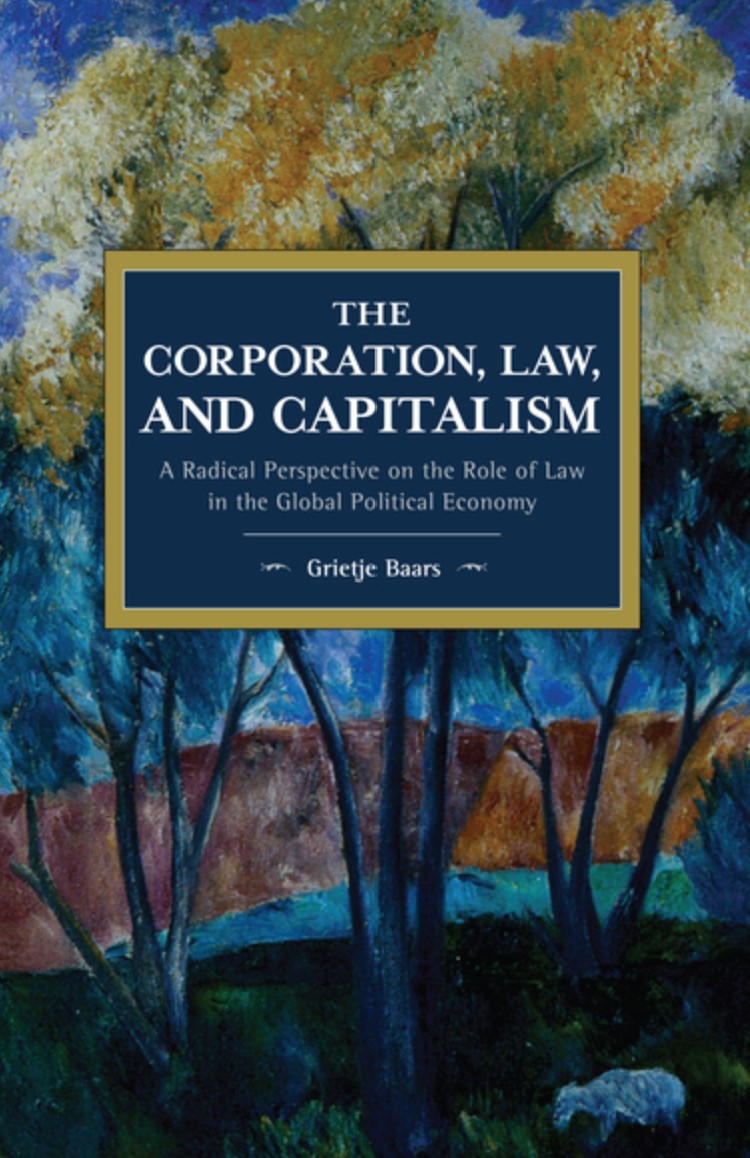Biographical Note
Readership
All interested in law, legal history and philosophy, Marxist theory and history of the global economy. Anyone interested in corporate human rights violations, international criminal law, accountability, Nuremberg and Tokyo.
Table of Contents
Preface
Acknowledgements
Abbreviations
1 Introduction: ‘Das Kapital, das immer dahinter steckt’
1 Introduction
2 Theoretical Framework
3 ‘Developing the Form on the Basis of the Fundamental Form’
4 Beyond ‘Nebulous Left Functionalism’: Further Considerations on Marxism and Law
5 Conclusion
2 The Roots, Development, and Context of the Legal Concept of the Corporation: the Making of a Structure of Irresponsibility and a Tool of Imperialism
1 Introduction to 2A and 2B
2A The ‘Back Story’ of the Legal Concept of the Business Company
1 Introduction to 2A
2 Epistemology of the Corporate Legal Form
3 The Creation of Market Society: Legal Relations and Legal Entities
4 From the Joint Stock Corporation to the MNC
5 Conclusion to 2A
2B The Corporation and the Political Economy of International Law
1 Introduction: The Corporation and Capitalism in International Law
2 Corporations, Law and Capitalism
3 Corporations in IL in the Twentieth Century
4 Class Law and Class Struggle in IL
5 Conclusion to 2B
6 Afterword to 2A and 2B: the Modern Corporation and Criminal Law
3 Capitalism’s Victor’s Justice? The Economics of World War Two, the Allies’ Trials of the German Industrialists and Their Treatment of the Japanese zaibatsu
1 Introduction to 3A and 3B
3A Germany
1 Introduction to 3A
2 From War to Trials: Why ‘Nuremberg’?
3 The US Occupation and Economic Reform of Germany
4 Nuremberg: Political Demands Translated into Law
5 The Turnaround: from Germany is Our Problem to Germany is Our Business
6 The Trials of the Industrialists: from Morality Play to Theatre of the Absurd
7 Industrialists in Other Zonal Trials
8 Conclusion to 3A
3B Japan: the Tokyo International Military Tribunal, or, How the East Was Won
1 Introduction to 3B
2 Why Tokyo?
3 The US Occupation and Economic Reform of Japan
4 The International Military Tribunal for the Far East
5 Economic Occupation Policy: zaibatsu Dissolution and the ‘Reverse Course’
6 Conclusion to Chapter 3: Capitalism’s Victor’s Justice
4 Remaking ICL: Removing Businessmen and Inserting Legal Persons as Subjects
1 Introduction to 4A, 4B and 4C
4A The (ReMaking of ICL: Lawyers Congealing Capitalism
1 Introduction to 4A: Constructing ICL’s Foundational Ideology
2 ICL ideology, Pre-fab Critiques and Foreclosed Critiques
3 An Alternative Foundational Narrative for ICL
4 Conclusion to 4A
4B ‘No Soul to Damn and No Body to Kick’? Attribution, Perpetration and Mens Rea in Business
1 Introduction to 4B
2 Conclusion to 4B: so Many Men, so Many Modes
4C Re-Making ICL: Who Wants to Be an International Criminal? Casting Business in Contemporary ICL
1 Introduction to 4C
2 The ‘New ICL’ and Re-opening the Debate on Collective Liability
3 ‘De-Individualising ICL’: towards Legal Person Liability?
4 From Theory to Practice: Recent Developments
5 Conclusion to 4C
6 Conclusion to 4A, 4B and 4C: Who Let the Dogmatisierung out?
5 Contemporary Schreibtischtäter: Drinking the Poison Chalice?
1 Introduction
2 The ICC
3 Alternative Ways of Dealing with Business in Conflict
4 ICL on the Domestic Level
5 Host State Cases
6 Conclusion
6 Corporate Imperialism 3.0: from the Dutch East India Company to the American South Asia Company
1 Introduction: Corporate Imperialism 3.0: The American South Asia Company
2 The Story so far …
3 The Creation of the Corporate Soul: Corporate Citizenship and Corporate Social Responsibility as the ‘Last Maginot Line of Capitalism’
4 Legalised CSR, CA Cause Lawyering and Corporate ICL Problematised
5 Consciousness-Building and the Seed of the New
Appendix A
Appendix B
Appendix C
Appendix D
Appendix E
Appendix F
References
Index


